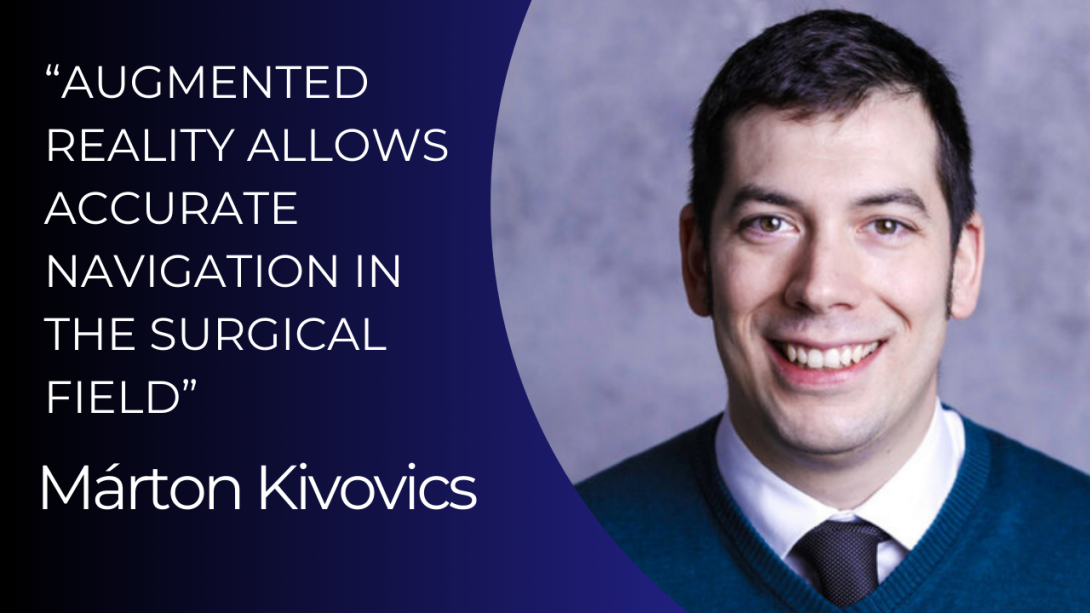
With his PhD students, he is exploring the potential of augmented reality and artificial intelligence in dentistry, to enable more accurate implant placement and more effective dental care. In December, Dr. Márton Kivovics was named Supervisor (Year 2-3) of the Month.
Dr. Márton Kivovics supports the work of two PhD students at the Centre for Translational Medicine. One of them is Dr. Anna Takács, who is now in her second year of training. „Anna joined us as a student researcher at the Department of Community Dentistry, Semmelweis University. Here, I have two research topics. One is the application of biomaterials in the surgical rehabilitation of the dento maxillofacial area, and the other is the utilization of digital techniques in oral rehabilitation. We are also testing a system that works with augmented reality and supports the placement of implants.” The system being tested is a Hungarian development that is not commercially available yet. Before using it, dentists digitally model the oral structures and plan the prosthesis in virtual space. Augmented reality is used to reproduce the planned position of dental implants during surgery. During this process, the dentist wears a virtual retinal display to project the surgical plan onto the oral structures.
“Anna's research on augmented reality has already been published in the Journal of Dentistry, the scientific journal of the Digital Dentistry Society. The results of the study show that augmented reality allows more accurate implant placement than freehand placement and its accuracy is similar to static navigation using a surgical template. The main advantage of augmented reality is that it allows visualization of the surgical plan and the surgical area simultaneously. Dr. Kivovics's research team has already conducted a meta-analysis comparing the accuracy of implant placement methods, which also provided useful information on the robot-assisted Computer Assisted Implant Surgery.
Dr. Kivovics has another PhD student, who spends her first year in the training. She is Dr. Bruna Katherine Guimarães Carvalho, who investigates the accuracy of artificial intelligence used in approximal caries diagnostic. “We are clarifying how effective this method is, compared to expert dentists. The early diagnosis of approximal caries is crucial, and we think AI might be beneficial in this field.” Dr. Guimarães is also involved in a study using AI to identify the types of dental implants that have been previously placed. This is a crucial issue because if the type of a two-piece implant is unknown, dentists cannot use it for a new prosthesis. In such cases, the implant may have to be removed. This could be prevented by identifying the type of implant with the help of artificial intelligence.
(Emese Szabó)